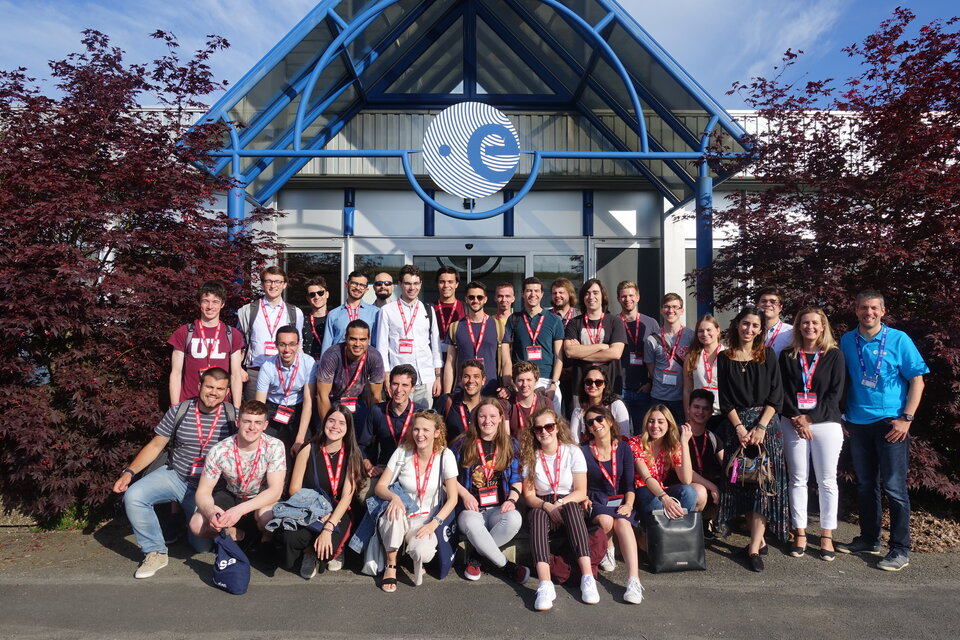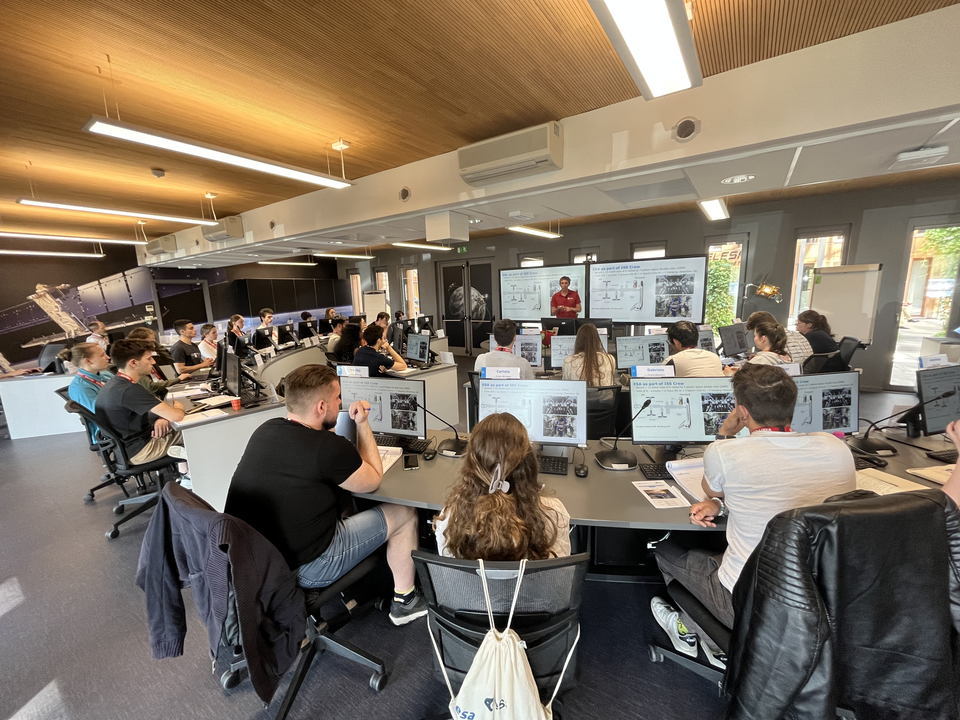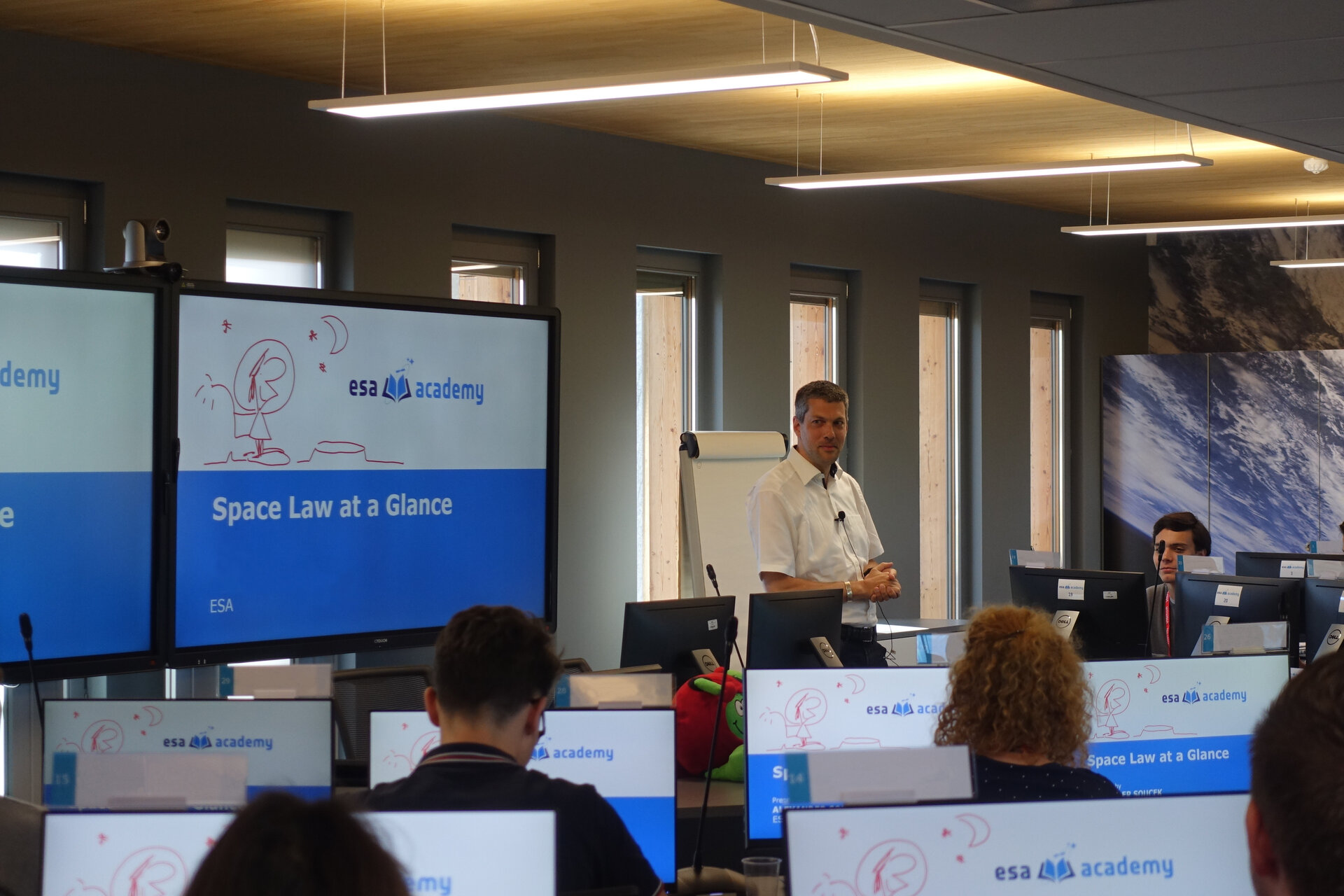Enroll on the 2024 ESA Academy Introduction to Space Law Training Course
Following the success of previous editions, ESA's Education Office, in collaboration with ESA's Legal Services Department, is once again organising the five-day Introduction to Space Law Training Course. The third edition of this course will take place in-person from the 5th to the 9th of February 2024 at ESA Academy’s Training and Learning Facility in ESA’s European Space Security and Education Centre (ESEC), Belgium.

From the smallest student CubeSat to large-scale projects like the International Space Station, all space activities are governed by space law. International space law originated under the auspices of the United Nations, starting right after the launch of Sputnik-1 in 1957 and leading to the Outer Space Treaty, the ‘Magna Carta’ of space law, as entered into force in October 1967. This Treaty is considered the cornerstone of space law and impacts the daily work of space scientists and engineers, touching upon the authorisation of space activities, liability, insurance, and sustainability. Exploring space law is essential for future space professionals, offering insights into the legal landscape shaping their careers and space endeavours.
Furthermore, as humanity looks toward future missions to the Moon and Mars, the evolving space legal landscape will additionally require the definition of aspects not yet fully realised. These uncharted legal territories will shape the future of space exploration, making space law an indispensable field for those venturing into the cosmos.
During this week-long course, students will be taught by world-class experts in space law. They will discover that:
- a space mission is by its very nature an interdisciplinary endeavour involving science and technology but also policy, questions of administration and funding and, importantly, law
- An international legal framework governs space activities from the beginning of a mission to its very end
- National space laws play an important role in the development of space missions and, more broadly, in the development of the space sector in a country.
With these matters in mind, the students will come to appreciate that law is an integral part of the practical realisation of a space mission from the “cradle to the grave”. They can expect to be introduced to the following topics:
| Day 1 | - Raising the Curtain: Space Law at Glance - Setting the Scene: Introduction to Core Principles of International Law and an Overview over comparative fields of International Law - UN Space Treaties and other Legal Instruments (I): General Overview - UN Space Treaties and other Legal Instruments (II): Main Principles - Regional initiatives for European cooperation: ESA/EU/EUSPA and national Initiatives - Technical Standardisation Bodies - Law and Spaceflight: An Interactive Discussion |
| Day 2 | - The United Nations and Space: From the General Assembly to COPUOS and OOSA incl. Discussion on International Negotiation Techniques - Orchestrating International Consensus: The Example of Space Resources - The European Space Agency: An Actor and a Mechanism of Cooperation - International Cooperation: The Legal Framework of the International Space Station and the Future of Space Exploration - The Journey of a National Space Law - Anatomy of a National Space Law in Theory and Practice: the Case of Belgium - International Cooperation in Space |
| Day 3 | - Legal Lifecycle (I): Licensing, Mission Authorisation & Supervision - Legal Lifecycle (II): Launch & Early Orbit Phase - Legal Lifecycle (III): Operations & In-Orbit Transfer of Ownership - Legal Lifecycle (IV): End-of-life and Re-entry - Legal Lifecycle (V): Export Control - Security of Space Assets, Security through space assets? |
| Day 4 | - “Space Objects”: from CubeSats to Mega-Constellations to Space Debris Mitigation - Legal Lifecycle (VI): On-Orbit Servicing and Active Debris Removal - Rendez-vous and Close Proximity Operations - Procurement at ESA - Insurances in Space - “Orbits”: a Legal Trip from LEO to the Geostationary Orbit |
| Day 5 | - Looking beyond tomorrow (I): A changing space sector, new space and commercialisation - Looking Beyond Tomorrow (II): Space Traffic Management, Space Sustainability Efforts, Zero Debris |
As part of the course, the students will also be guided through a negotiation exercise and to this end, will be expected to undertake independent research.
Who can apply?

To participate, students must fulfil the following eligibility criteria at the time of application:
- Enrolled as a university student for the year 2023-2024 in a Bachelor (i.e., BSc or equivalent) Master (i.e., MSc or equivalent) or Doctoral degree programme (i.e., Ph.D. or equivalent) with a background in engineering, science, or business
- Aged minimum 18 years old. ESA Academy and relevant partners will only appraise applications from students who have no or limited professional experience in relevant scientific or other space-related topics
- Citizen of an ESA Member State, an ESA Associate Member (Latvia, Lithuania, Slovakia or Slovenia) or Canada*.
Attendance to the entire 5-day training course on-site at ESEC is mandatory. Accommodation, meals, as well as up to 300 EUR for travelling to Belgium will be covered by ESA Education.
To enhance the learning experience, students will actively engage in group exercises throughout the week to apply their newly acquired knowledge. Upon successful completion, participants will be awarded a certificate of participation and a course transcript, enabling them to request ECTS credit(s) from their respective universities.
How to apply?
- Fill in the application form
- Upload a motivation letter (PDF, maximum 1 page, no images)
- Upload a CV (Europass format, PDF, no images, maximum 2 pages)
- Upload a formal recommendation letter (PDF, maximum 1 page, including signature, no images) from a university professor or an academic supervisor from your current university (if not possible to receive the recommendation letter from your reference, please ask them to send a recommendation email to tlp@esa.int before the application deadline)
- Upload a copy of your Transcript of Grades from the two previous semesters, or, if not available, the previous graded academic year (PDF).
All answers and documents should be in English (Transcript of Grades can be submitted in language of hosting university, if unavailable in English). The deadline for applications to participate in the Introduction to Space Law Training Course 2024 is 27 November 2023, 23:59 CET.
*Canadian students enrolled in a Canadian post-secondary institution may apply for additional support from the Canadian Space Agency through this Announcement of Opportunity (grant applications must be submitted at least 7 weeks before the course delivery and account creation 3 weeks before the deadline). This additional support is to cover costs that are not already covered by ESA for selected Canadian post-secondary students.
For more information, please contact: tlp@esa.int


